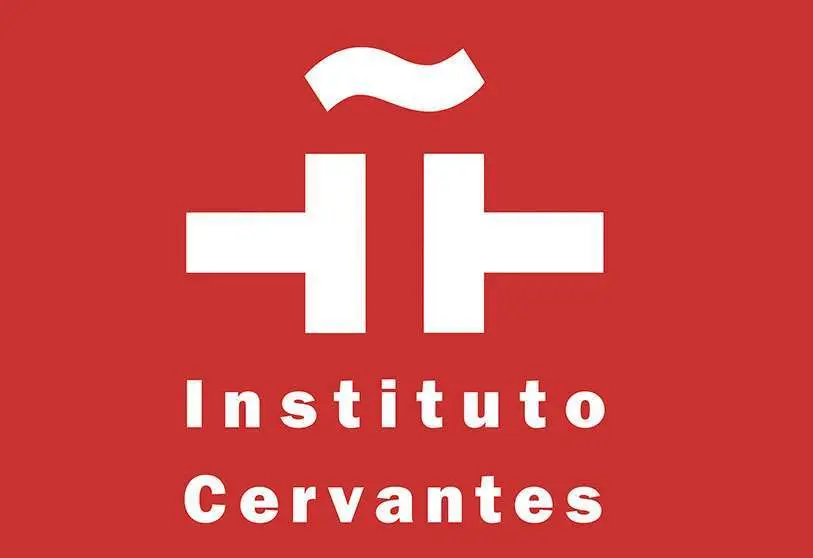The Cervantes Institute celebrates the European Day of Languages in Naples

The Cervantes Institute will celebrate the European Day of Languages this Friday in Naples (Italy) with a recital in which seven poets (four Spanish and three Italian) will recite their verses in as many languages spoken in both countries. Beforehand, the Neapolitan Cervantes Institute will host a working meeting with the Director General of Books and the heads of the Consello da Cultura Galega and the Etxepare Basque Institute.
The Italian city takes over from Paris and Berlin, which hosted in 2019 and 2020 respectively the events with which the Cervantes Institute joins this European Day that celebrates linguistic variety and cultural diversity in the old continent and encourages collaboration between institutions to promote multilingualism.
Under the title 'European Day of Languages. Invitation to the plural', the recital will feature the Spanish poets Rocío Acebal (Oviedo, 1997, who will recite in Spanish), Alba Cid (Ourense, 1989, who will recite in Galician), Beatriz Chivite (Pamplona, 1991, who will recite in Basque) and Jordi Valls (Barcelona, 1970, who will speak in Catalan).
On the Italian side, the guest poets are Franco Buffoni (who will declaim in Italian), Claudio Pennino (in Neapolitan) and Maurizio Mattiuzza (in Friulian).
The event will take place at the Castell dell'Ovo from 6 p.m. and can be followed live (streaming) on the website Directo 1 and the YouTube channel of the Cervantes Institute.
The poetry recital will be presented by Raquel Caleya, Director of Culture at the Cervantes Institute; María José Gálvez, Director General of Books and Promotion of Reading; Carlos Maldonado, Consul General of Spain in Naples; Annamaria Palmieri, Councillor of Culture of the city's municipality; Rosario Álvarez, President of the Consello da Cultura Galega; Irene Larraza, Director of the Etxepare Basque Institute, and Ferran Ferrando, Director of the Neapolitan Cervantes.
In the morning (11:30 a.m.), the aforementioned heads of the Cervantes Institute and the bodies that promote Galician and Basque, as well as the Director General of Books, will meet at the Cervantes headquarters in the Italian city to make progress in their collaboration on Spanish and the co-official languages. This cooperation is reflected in activities such as this multilingual poetry recital and other initiatives, including agreements between the Institute and the official bodies that promote Galician, Basque and Catalan.
The European Day of Languages, adopted in 2001 by the European Commission and the Council of Europe, pays tribute each year (around 26 September) to Europe's linguistic diversity, with the EU having 24 official languages and some 60 regional or minority languages, as well as many other languages from other parts of the world.
In addition to Naples, other Cervantes centres are also organising activities as part of the Day of Languages in collaboration with EUNIC, the network of national cultural institutes of the European Union.
The Cervantes Brussels will bring three poets, Sara Herrera from Cádiz, Leire Bilbao from Biscay and Miss Raisa from Barcelona, to the cycle 'Spanish women poets in Transpoesie 2021'. The 11th edition of the festival, under the slogan 'Be aware (today)', includes from tomorrow until 21 October various events celebrating multilingualism in the EU capital.
Budapest is co-hosting the 10th European Day of Languages on Friday with a day of informative workshops, short language classes and a question-and-answer corner for visitors.
Under the slogan 'Are you a polyglot?', Cervantes Manchester is co-organising this conference on Monday 27th, in which polyglots Richard Simcott and Andreas G. Wollf will talk about the advantages of learning languages, their learning strategies and the benefits they have had in their working lives.
On 2 October, the Amman centre will dedicate the day to a programme of educational and cultural activities aimed at teenagers and university students, who will find a language competition, a fun class and various games and activities on Hispanic culture and the varieties of Spanish.
For its part, Krakow invites participants to take part in the language gymkhana 'What kind of life is this?' and in the Open Doors Day, which will offer information, samples of Spanish courses, free level tests and the plastic workshop for children 'The voyage of Magellan and Elcano'.
Submitted by José Antonio Sierra, Hispanismo advisor.








